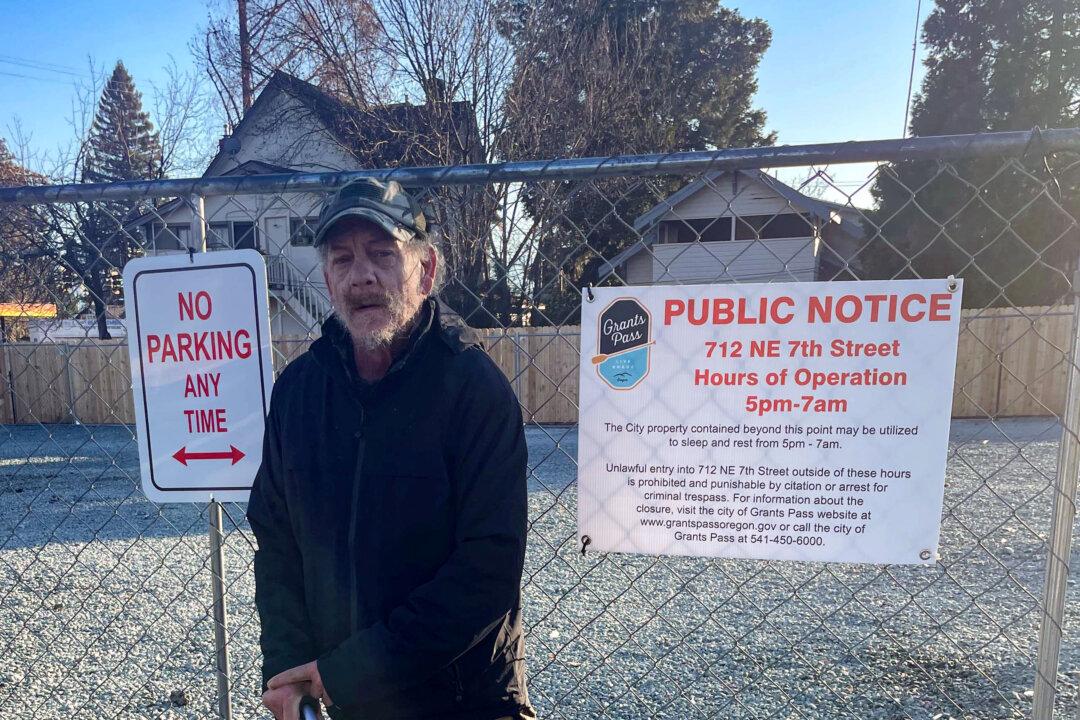An activist group is suing an Oregon city over its public camping policies after the city prevailed in a U.S. Supreme Court ruling that allowed municipalities to enforce homeless camping bans.
The new lawsuit comes after the Supreme Court in June 2024 upheld a local ordinance banning public camping, which activists claimed criminalized being homeless. In a 6–3 ruling, the court rejected the novel argument that the local law in Grants Pass, Oregon, violated the Eighth Amendment’s ban on cruel and unusual punishment.





